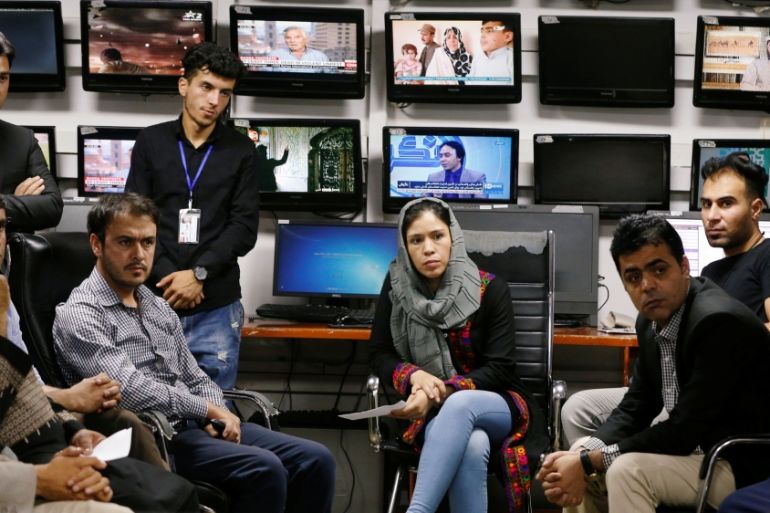‘Journalism is not a crime’: Taliban decried for threats to media
The Afghan president condemns Taliban warning, says attacks on media ‘is in contradiction to human and Islamic values’.

The United States and Afghanistan have denounced a Taliban warning that Afghan media will be targeted unless they stop broadcasting what the group called “anti-Taliban statements”.
Radio stations, TV channels and other media organisations had one week to stop transmitting “anti-Taliban advertisements”, the group’s military commission said in a statement on Monday.
Keep reading
list of 4 itemsPhotos: Tourist numbers up in post-war Afghanistan
Taliban ban on girls’ education defies both worldly and religious logic
Afghanistan calls for ‘respect’ after Cricket Australia snub
“Those who continue doing so will be recognised by the group as military targets who are helping the Western-backed government of Afghanistan,” it said, adding “reporters and staff members will not remain safe”.
President Ashraf Ghani’s office condemned the threats by the armed group on Tuesday, which has previously targeted reporters and employees of media organisations.
“Freedom of expression and attacks on media organisations is in contradiction to human and Islamic values,” Ghani’s office said in a statement.
Peace talks
The warning comes as Taliban leaders prepare for a seventh round of peace talks with US officials aimed at finding a political settlement to end the 18-year-old war in Afghanistan.
The next round of talks is scheduled to begin on June 29 in Doha.
John Bass, the US ambassador to Afghanistan, said the Taliban should stop threatening Afghan journalists.
“Afghanistan’s vibrant media is a testament to the gains of the last 18 years. Journalism is not a crime, it is a valued public service to the world,” Bass said on Twitter
“More violence, against journalists or civilians, will not bring security and opportunity to Afghanistan, nor will it help the Taliban reach their political objectives,” he said.
We call on the Taliban to stop threatening Afghan journalists. More violence, against journalists or civilians, will not bring security and opportunity to Afg, nor will it help the Taliban reach their political objectives. 2/2
— Chargé d’Affaires Ross Wilson (@USAmbKabul) June 25, 2019
Afghanistan was the deadliest country in the world to be a journalist in 2018, with 13 deaths according to the Committee to Protect Journalists (CPJ). The International Federation of Journalists said 16 journalists were killed last year.
With the international media presence in Afghanistan sharply reduced since the withdrawal of international troops in 2014, domestic media outlets have filled the gap but their work has become increasingly difficult.
In 2016, a Taliban suicide bomber rammed his car into a bus carrying employees of Tolo TV, the country’s largest private broadcaster, killing seven journalists.
The Taliban said it killed the employees because Tolo was producing propaganda that supported the occupation of Afghanistan by the US and its allies.